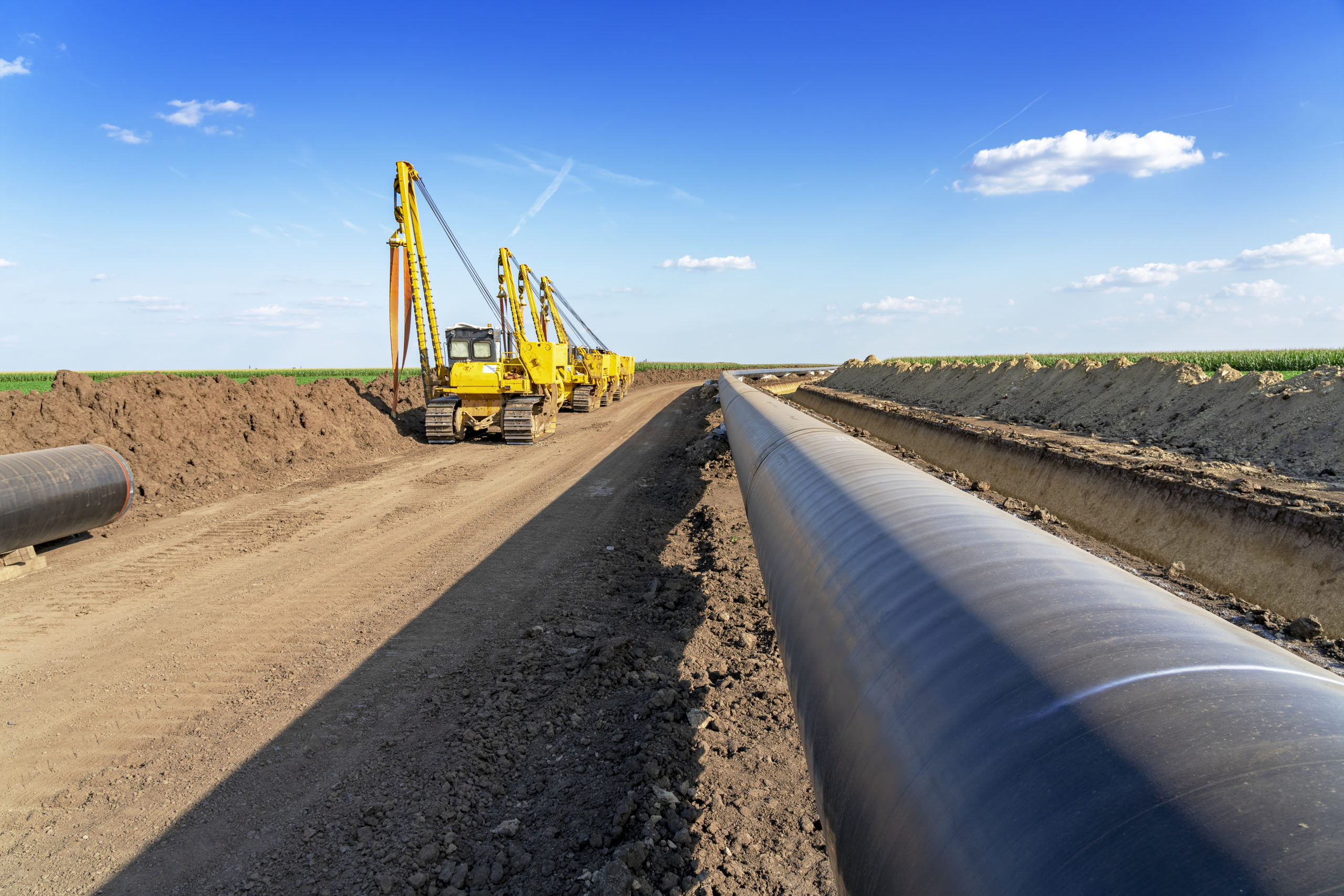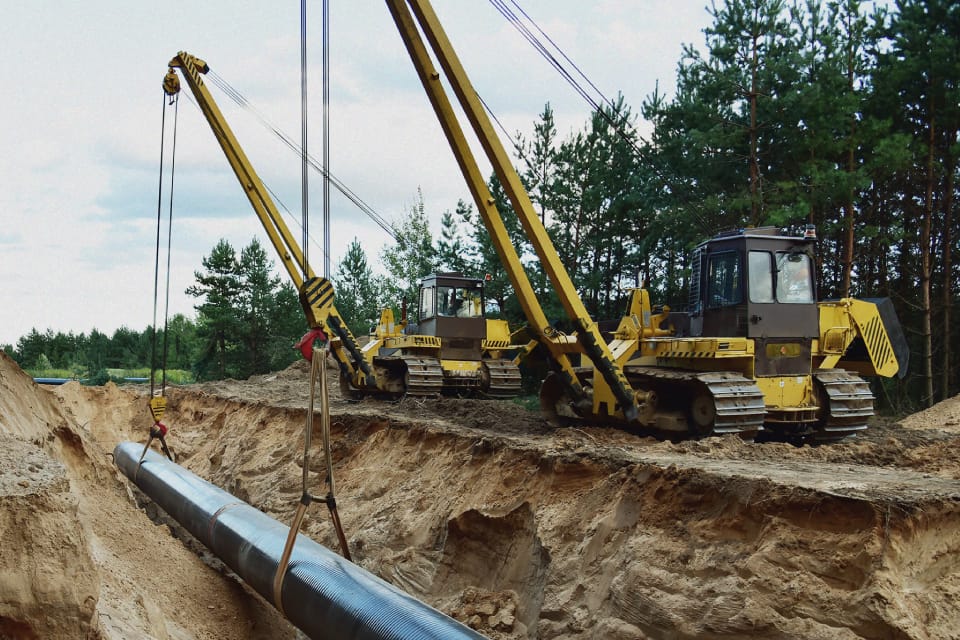How Creek Pipe Texas Is Modernizing Rural Water Systems
Wiki Article
A Comprehensive Guide to Recognizing Pipes and Their Duty in Construction
Pipelines are crucial elements in building, serving vital functions in waste, gas, and water monitoring. Their option and application can significantly affect a building's performance and safety. Different materials, such as PVC, copper, and PEX, provide unique benefits suited to particular needs (Creek Pipe Company). Comprehending these factors is key for any type of building job. As one checks out the details of pipelines, the ramifications for conformity and public health ended up being significantly apparentThe Relevance of Pipeline in Building
Pipelines work as essential avenues in building and construction, assisting in the activity of water, gas, and waste throughout buildings and facilities. Their role prolongs beyond plain transport; they are essential for making sure the capability and safety of household and industrial atmospheres. Properly installed pipes contribute to the efficient circulation of resources, making it possible for daily activities such as home heating, cooking, and bathing. Moreover, pipes play an essential role in waste management, ensuring that sewer and wastewater are effectively removed from living spaces.The importance of pipes is likewise mirrored in their impact on public health. Insufficient or damaged piping systems can result in contamination and hazardous conditions, making quality materials and installment methods crucial. Additionally, pipelines need to follow different structure codes and laws, which are designed to shield both passengers and the environment. The significance of pipes in construction encompasses both functional performance and important wellness factors to consider.Kinds of Piping Used in Structure Projects
Numerous kinds of pipelines play a significant role in structure jobs, each made to meet details needs and applications. Amongst one of the most frequently used pipeline types are PVC, which is resistant and lightweight to rust, making it optimal for drain and vent systems. CPVC pipelines, similar to PVC, can stand up to higher temperatures, usually used in hot water systems. Copper pipelines are known for their resilience and reliability, regularly used in pipes and home heating applications. Galvanized steel pipelines, while much less typical today, were when a criterion for water supply lines because of their toughness. In Addition, PEX (cross-linked polyethylene) pipelines are gaining popularity for residential pipes due to their versatility and resistance to scaling and chlorine. Finally, cast iron pipelines are preferred for their sound-dampening residential properties, frequently used in waste and soil systems. Each pipeline type serves distinct functions, guaranteeing reliable procedure in construction jobs.Usual Products for Water Lines and Their Feature
In building, the choice of pipe materials is important for making certain toughness and capability. Steel pipes offer toughness and resistance to high pressures, while plastic pipelines provide lightweight and corrosion-resistant options. Compound pipes integrate the benefits of both products, making them versatile choices for different applications.Steel Pipe Options
Steel pipelines are integral parts in building and construction, providing a variety of choices that deal with environmental problems and various applications. One of the most usual materials consist of steel, copper, and cast iron. Steel pipes are recognized for their toughness and sturdiness, making them ideal for high-pressure applications. Copper pipelines are favored for their rust resistance and antimicrobial residential properties, typically made use of in pipes systems. Cast iron pipes give superb audio insulation and are suitable for waste and water drainage systems. Each metal type has unique benefits; as an example, galvanized steel can resist rust, while stainless-steel offers exceptional rust resistance. Picking the ideal steel pipeline relies on variables such as cost, environmental direct exposure, and the details needs of the building project.
Plastic Pipe Advantages
Plastic pipelines have obtained appeal in construction as a result of their lightweight nature and adaptability. These pipelines, made from products such as PVC, CPVC, and PE, deal outstanding resistance to rust and chemical damages, making them suitable for different applications. Their simplicity of installment additional boosts their appeal, as they can be cut and signed up with without unique tools. In addition, plastic pipelines are typically much more economical compared to metal choices, adding to lower general task expenditures. Their smooth indoor surface areas reduce rubbing and improve flow rates, while insulation residential or commercial properties aid preserve temperature control in pipes systems - Creek Pipe Pipeline Construction. With a vast range of configurations and sizes readily available, plastic pipes properly fulfill the diverse demands of modern-day building and construction tasksCompound Pipeline Characteristics
Composite pipelines integrate various products to leverage their private strengths, resulting in boosted efficiency and sturdiness. Generally, these pipes contain layers that might consist of steels, ceramics, and plastics, each contributing special homes. The inner layer might be made of a corrosion-resistant product, while the external layer provides strength and impact resistance. This mix allows composite pipes to endure severe temperatures and pressures, making them suitable for a wide variety of applications, consisting of water system and industrial processes. In addition, composite pipelines are commonly lighter than typical materials, promoting less complicated handling and installation. Their convenience and flexibility to various environments make them a recommended option in modern construction projects, guaranteeing longevity and performance in fluid transportation systems.Applications of Water Lines in Pipes Equipments

Electrical Conduits: The Duty of Piping in Circuitry
In modern-day construction, electrical channels play a necessary role in making sure the reliable and secure routing of electric wiring throughout structures. These pipes supply a protective pathway for electric cords, safeguarding them from physical damages and ecological elements. Various materials, such as PVC, steel, and flexible channels, are utilized depending on the specific needs of the installation.Furthermore, conduits aid in arranging electrical wiring systems, lowering the danger of electric dangers like short circuits or fires. They additionally facilitate simpler maintenance and upgrades, as wires can be accessed and changed without significant interruption to the structure.Proper installment of electric avenues is essential for conformity with building codes and safety policies. This organized method not only improves the durability of the electrical system however likewise adds to the overall safety and functionality of the building, making electric avenues crucial in modern-day building and construction techniques.Picking the Right Pipeline for Your Job
How can one guarantee the right pipeline option for a building and construction task? The choice process begins with recognizing the details demands of the job, including the kind of liquids being carried, pressure ratings, and ecological conditions. Material alternatives, such as Steel, copper, and pvc, need to be examined based on resilience, corrosion resistance, and thermal properties.Next, one have to think about the pipe's size and flow ability to establish efficient click for more info procedure. Regulative standards and codes need to also be complied with, as they dictate the appropriate materials and techniques for certain applications. Consulting with professionals and using comprehensive sources can even more assist in making informed decisions.Finally, reviewing the cost-effectiveness of different alternatives is important, stabilizing initial costs with long-term maintenance and replacement prices - Creek Pipe Pipeline Construction. By diligently examining these aspects, one can confidently choose the most suitable pipeline for their construction project, ensuring both capability and compliance
Maintenance and Evaluation of Pipes in Construction
Correct choice of pipes establishes the structure for their long-term efficiency, making upkeep and evaluation critical parts in building. Regular upkeep assurances that any possible issues, such as find more information leakages, rust, or blockages, are determined and dealt with without delay, lessening costly fixings and job hold-ups. Arranged inspections, consisting of visual evaluations and pressure tests, play an essential duty in assessing the integrity of pipeline systems.Additionally, monitoring ecological factors, such as temperature variations and soil problems, can help expect damage. Utilizing innovative technologies, such as CCTV for interior examinations, can enhance the efficiency of upkeep efforts. It is vital to record evaluation searchings for and maintenance tasks to develop an extensive background of the pipe systems. By prioritizing maintenance and examination, construction experts can extend the life-span of their piping systems, ensuring they run efficiently and dependably throughout the job's duration.Often Asked Concerns
Just How Do Pipelines Affect Energy Effectiveness in Structures?
Pipelines greatly influence energy effectiveness in buildings by controling heating and cooling systems. Appropriate insulation and products minimize power loss, while reliable pipes layouts decrease water use, ultimately leading to lower energy consumption and operational costs.What Regulations Govern Pipe Installation in Construction?
Regulations regulating pipeline setup in building and construction normally consist of neighborhood and nationwide building codes, pipes codes, and safety and security standards. These assurance conformity with architectural stability, material specs, and health demands, advertising safety and security and efficiency in building practices.Can Water Lines Be Recycled After Use?
The question of pipeline recyclability is significant. Numerous products, such as steel and certain plastics, can be reused properly. The problem and kind of pipeline influence recycling feasibility, demanding proper analysis before disposal.
How Do Climate Condition Impact Pipe Performance?
Weather condition problems greatly influence pipe performance. Severe temperatures can trigger growth or contraction, while wetness might cause deterioration. Additionally, hefty precipitation can increase soil pressure, affecting security and general capability of the click for info piping system.What Are the Signs of Pipeline Failure to Look For?
Indicators of pipe failure include leakages, uncommon noises, discoloration of water, lowered water stress, and noticeable deterioration. Normal examinations can help detect these issues early, making certain and stopping expensive repairs system capability in the long-term. Pipelines play a crucial role in waste administration, making sure that sewer and wastewater are effectively removed from living spaces.The relevance of pipelines is additionally reflected in their impact on public wellness. In building and construction, the selection of pipe products is critical for making sure toughness and performance. Steel pipelines provide strength and resistance to high pressures, while plastic pipelines provide corrosion-resistant and lightweight alternatives. Furthermore, pipes are used to remove wastewater, connecting toilets, sinks, and drains pipes to community sewer systems or septic tanks.Different kinds of pipelines, such as PVC, copper, and PEX, are selected based on aspects like sturdiness, expense, and specific application demands. Exactly how can one assure the ideal pipeline choice for a building task?Report this wiki page